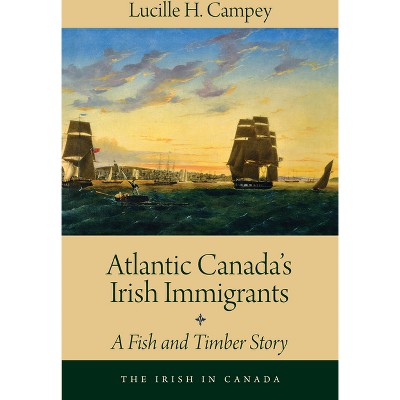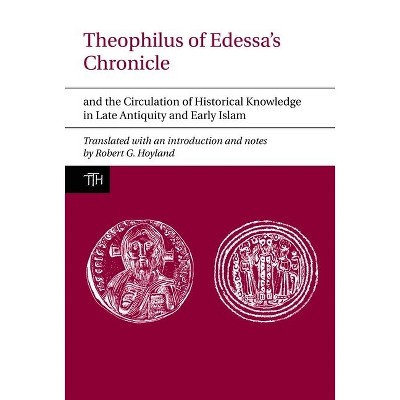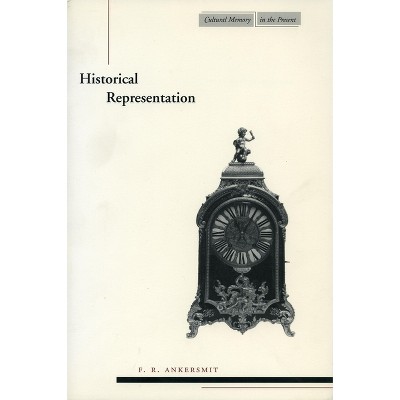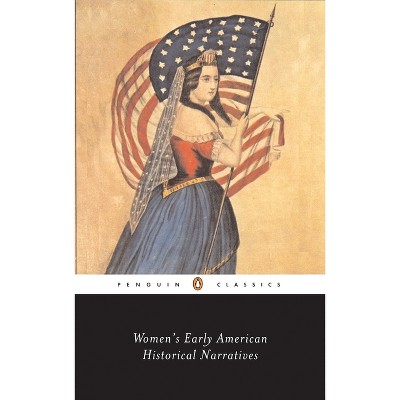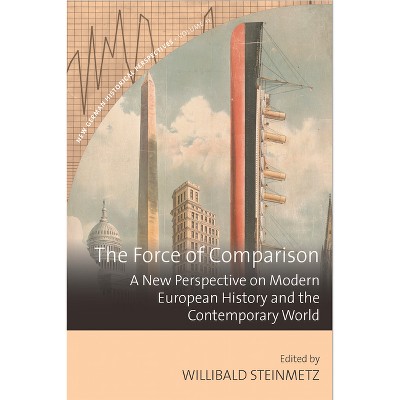Sponsored

Historical Knowledge, Historical Error - by Allan Megill (Paperback)
In Stock
Sponsored
About this item
Highlights
- In the past thirty years, historians have broadened the scope of their discipline to include many previously neglected topics and perspectives.
- About the Author: Allan Megill is professor of history at the University of Virginia.
- 304 Pages
- History, Historiography
Description
Book Synopsis
In the past thirty years, historians have broadened the scope of their discipline to include many previously neglected topics and perspectives. They have chronicled language, madness, gender, and sexuality and have experimented with new forms of presentation. They have turned to the histories of non-Western peoples and to the troubled relations between "the West" and the rest. Allan Megill welcomes these developments, but he also suggests that there is now confusion among historians about what counts as a justified account of the past.
In Historical Knowledge, Historical Error, Megill dispels some of the confusion. Here, he discusses issues of narrative, objectivity, and memory. He attacks what he sees as irresponsible uses of evidence while accepting the art of speculation, which incomplete evidence forces upon historians. Along the way, he offers succinct accounts of the epistemological road historians have traveled from Herodotus and Thucydides through Leopold von Ranke and Alexis de Tocqueville, and on to Hayden White, Natalie Zemon Davis, and Lynn Hunt.From the Back Cover
In the past thirty years, historians have broadened the scope of their discipline to include many previously neglected topics and perspectives. They have chronicled language, madness, gender, and sexuality and have experimented with new forms of presentation. They have turned to the histories of non-Western peoples and to the troubled relations between "the West" and the rest. Allan Megill welcomes these developments, but he also suggests that there is now confusion among historians about what counts as a justified account of the past.
In Historical Knowledge, Historical Error, Megill dispels some of the confusion. Here, he discusses issues of narrative, objectivity, and memory. He attacks what he sees as irresponsible uses of evidence while accepting the art of speculation, which incomplete evidence forces upon historians. Along the way, he offers succinct accounts of the epistemological road historians have traveled from Herodotus and Thucydides through Leopold von Ranke and Alexis de Tocqueville, and on to Hayden White, Natalie Zemon Davis, and Lynn Hunt.
Review Quotes
"Demanding intellectual rigor, Megill re-defines familiar terms and interjects his own firm opinions, leading readers along a circuitous path through the brambles of his own impressive learning. Readers can only trail along after this insightful and candid guide as he provocatively cites noted philosophers and historians, chastising them for solecisms. . . . To read his essays is like auditing a bracing seminar conducted by a stimulating, opinionated teacher."--Raymond Grew "Journal of Interdisciplinary History"
"The essays are to acquaint students with contemporary challenges of improper methodology or epistemology, to be overcome like the (more numerous) labors of Hercules."--John L. Harvey "H-France"
"This is a rewarding book. In ten essays, Allan Megill explores some of the most pressing challenges and worrisome pitfalls in modern historical practice. . . . These challenging and stimulating essays succeed well . . . in affirming that history works best when it is sharply distinguished from the present. Indeed, by remaining true to its core disciplinary methods and ideals, history can serve, Megill movingly concludes, 'as a model of honesty and intelligence in the investigation of the human world.'"--Christopher Layne "Journal of American History" (12/1/2007 12:00:00 AM)
"This is an engaged book: it energetically attempts to provide 'a contemporary guide to practice, ' to ward off historical error by the discriminating constitution of historical knowledge. At the heart of the book is Megill's long-standing engagement with the concept of 'objectivity, ' and his effort to reconstitute the notion in terms of its many and nested significations."--John H. Zammito "Journal of Southern History"
"With this rigorous and lucid work, Megill has made a major contribution to the understanding of historical thought. . . . In brief, this is a work of exceptional value. Essential."-- "Choice" (7/1/2007 12:00:00 AM)
"Historical Knowledge, Historical Error is part of a resurgence of interest in the philosophy of history. Allan Megill knows his history and is more than usually sophisticated as a philosopher. He has useful and wise things to say on a host of topics including memory, counterfactuals, narrative, and professionalization. By no means do I agree with all that Megill has argued, but he is intelligent, clear, and displays a scholarly integrity that is rock-solid. The book deserves our extended attention."--Bruce Kuklick, University of Pennsylvania
--Bruce Kuklick (9/28/2006 12:00:00 AM)"Megill's book represents a major and much-needed intervention in the debates that have engaged historians and philosophers of history in the last two or three decades. Coming from someone who has thought deeply, carefully, and long on the meanings of historical objectivity for our times, this is a book that presents a fresh and clear point of view. Megill's argument deserves attention from everybody who wonders about where the discipline of history might be headed once the dust has settled on the tired debates over objectivity versus relativist skepticism."--Dipesh Chakrabarty, University of Chicago
--Dipesh Chakrabarty (9/28/2006 12:00:00 AM)About the Author
Allan Megill is professor of history at the University of Virginia. He is the author of Prophets of Extremity: Nietzsche, Heidegger, Foucault, Derrida and Karl Marx: The Burden of Reason (Why Marx Rejected Politics and the Market), and editor of Rethinking Objectivity.
Shipping details
Return details
Trending Non-Fiction





